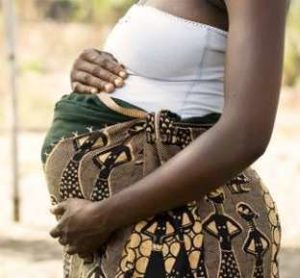Institutional maternal, neonatal mortality increases in Northern Region
 The era of more women dying through child birth has resurfaced in the Northern Region as the region recorded 100 institutional maternal deaths in 2023 compared to 69 deaths in 2022.
The era of more women dying through child birth has resurfaced in the Northern Region as the region recorded 100 institutional maternal deaths in 2023 compared to 69 deaths in 2022.
This brought the region’s institutional maternal mortality ratio to 136.7 per 100,000 live births in 2023 compared to 94.5 per 100,000 live births for the year 2022, with the national target being 125 per 100,000 live births.
Dr Abdulai Abukari, Northern Regional Director of Health, announced the figures during the 2023 annual health performance review meeting in Tamale.
The annual health performance review examines health service delivery, the gaps and measures to address the identified gaps and or challenges.
Dr Abukari described the situation as a serious challenge in the fight against maternal mortality in the region, saying “the Regional Health Directorate had taken some serious measures towards addressing this worrisome trend of maternal deaths in the region” adding “We now have regional as well as districts and facilities’ task force on maternal mortality.”
He said the region’s institutional neonatal mortality rate also witnessed a slight increase from 4.6 per 1,000 in 2022 to 4.7 per 1,000 in 2023.
He said the slight increase in neonatal mortality was largely due to service delivery challenges of occasional absence of medical doctors in some of the major referral centres in the region leading to suboptimal functioning of those hospitals.
He touched on the doctor-patient-ratio of the region, saying the region, as at the end of 2023, had 335 medical doctors with 275 (82%) at the Tamale Teaching Hospital.
Dr Abukari added that “We currently have 50 medical doctors within the Ghana Health Service facilities, which is an improvement from 30 medical doctors as at the beginning of the last quarter of 2023. With a population of 2,409,018, this therefore, brings the doctor-to-population ratio to about one doctor to 2,277.”
He indicated that malaria, upper respiratory tract infection, diarrheal diseases, anaemia and urinary tract infection were still the five top causes of out-patient department (OPD) attendance in the region, saying “We, therefore, need to intensify our health education to reduce the incidence of these diseases.”
Dr Patrick Kuma-Aboagye, Director-General, Ghana Health Service said while progress was being made in some areas, “OPD per capita, institutional infant mortality, institutional under five mortality, percentage of skilled delivery, institutional maternal mortality ratio, and all immunization coverage have been quite stagnant but we shall do more intentionally this year to see a shift in the right direction.”
He urged health staff to be focused on delivering good quality work as always, saying “Let us forge good relationships and partnerships wherever we are, for alone we can do little but together with others, we can do so much more.”
Alhaji Shani Alhassan Saibu, Northern Regional Minister, whose speech was read on his behalf by the Northern Regional Coordinating Director, said, “There is no doubt that central government alone cannot meet the health needs of all the citizenry, hence the need for effective partnership and collaboration for continual effective health service delivery across all levels.”
Source: GNA
